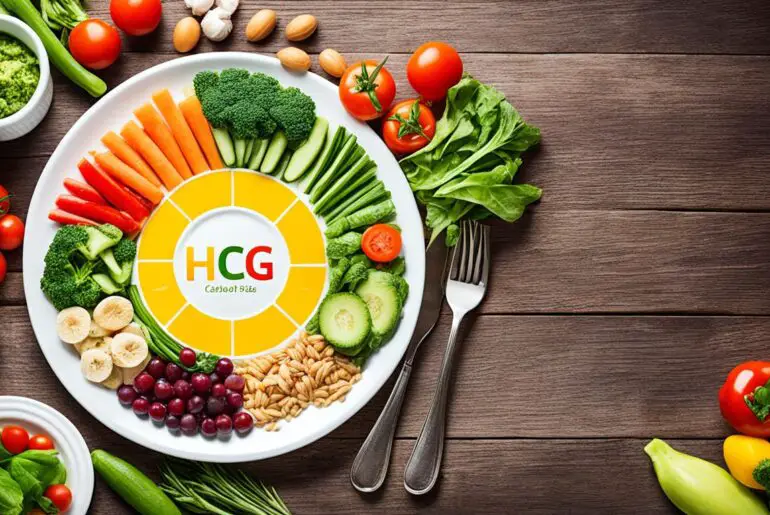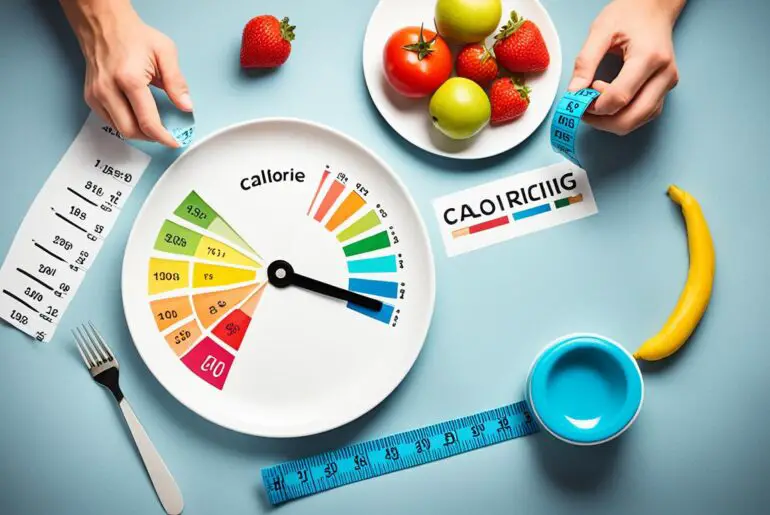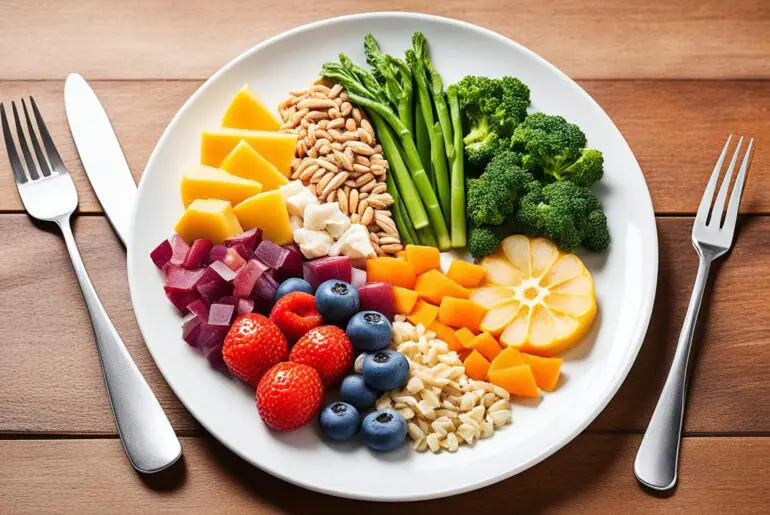Are you considering the HCG diet for weight loss? Before you embark on this extreme calorie-restricted plan, it’s essential to understand the impact it may have on your health. With claims of rapid weight loss and fat burning, the HCG diet has gained popularity in recent years. But does it really provide a healthy and sustainable approach to weight loss?
In this article, I will explore the concept of healthy calorie consumption on the HCG diet and provide insights into the potential risks and benefits associated with this controversial weight loss regimen. Join me as we uncover the truth behind the HCG diet and discover alternative methods for achieving your weight loss goals.
Key Takeaways:
- The HCG diet involves severe calorie restriction, typically ranging from 500 to 800 calories per day.
- There is no scientific evidence to support the effectiveness of the HCG diet for weight loss.
- The HCG diet may pose several potential risks, including nutrient deficiencies and disordered eating behaviors.
- Weight loss achieved on the HCG diet is primarily due to the severe calorie restriction, not the HCG hormone itself.
- Health care professionals recommend safer and more sustainable methods for weight loss, such as balanced nutrition and lifestyle changes.
What is the hCG diet?
The hCG diet is a weight loss approach that was first introduced by a British physician in the 1950s. It involves following a very low-calorie diet while taking supplemental hCG (human chorionic gonadotropin) injections. The calorie intake on this diet is typically restricted to 500-800 calories per day. The approved foods on the hCG diet include lean proteins, non-starchy vegetables, and limited fruits.
It’s important to note that the use of hCG for weight loss is not supported by the FDA, and there is no scientific evidence to support its effectiveness. While proponents of the hCG diet claim that it promotes weight loss by burning stored body fat, it’s crucial to consult with a healthcare professional before considering this diet.
Is the hCG diet safe?
The hCG diet is not considered safe by health experts. The severe calorie restriction can lead to nutrient deficiencies and potential risk of developing other diseases. It also raises concerns about the potential for disordered eating behaviors. The FDA has warned against the use of over-the-counter hCG products, as they are unregulated and may contain unknown ingredients. Side effects of the hCG diet may include fatigue, irritability, depression, and potential for blood clots and other serious adverse reactions.
Does hCG promote muscle loss?
The hCG diet claims to promote fat loss while preserving muscle mass. However, there is no scientific evidence to support this claim. In fact, very low-calorie diets like the hCG diet can lead to decreased muscle mass and a slower metabolism, making it difficult to maintain weight loss in the long term.
It is important to note that muscle loss can have negative effects on overall body composition. When muscle mass decreases, it can result in a higher percentage of body fat, which can have implications for health and well-being. Additionally, muscle plays a crucial role in maintaining a healthy metabolism, as it is more metabolically active than fat.
Achieving a healthy body composition involves maintaining a balance between muscle mass and body fat. This balance can be supported through regular exercise, including strength training and resistance exercises, as well as a well-rounded and nutritious diet. While the hCG diet may lead to initial weight loss, it is crucial to consider the potential impact on muscle mass and overall body composition in the long term.
It is always recommended to consult with a healthcare professional or registered dietitian before embarking on any weight loss program or diet. They can provide personalized guidance and support based on individual needs and help create a plan that focuses on achieving and maintaining a healthy body composition.
Does the hCG diet work for weight loss?
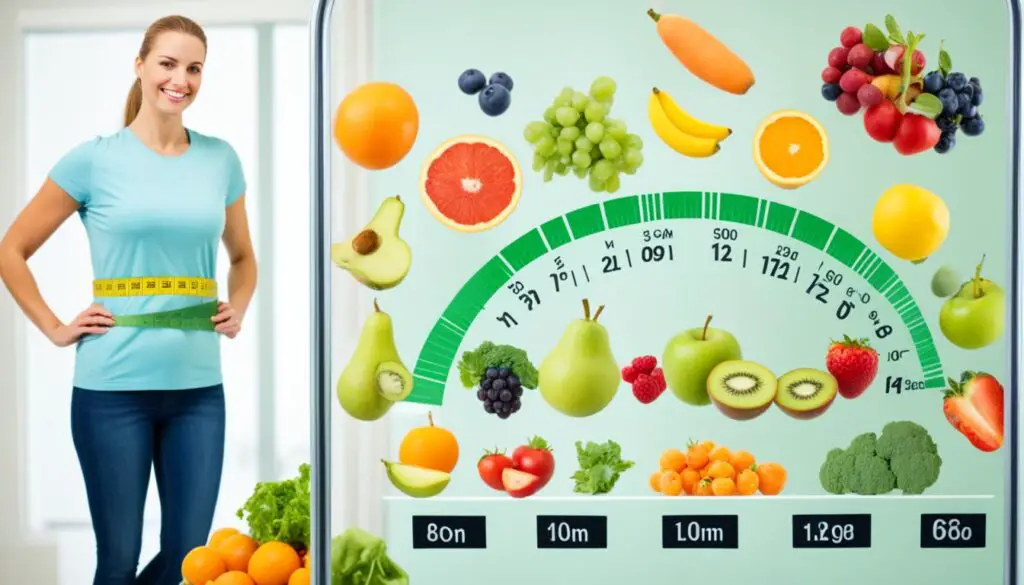
Studies have shown that weight loss achieved on the hCG diet is primarily due to the severe calorie restriction, not the hCG hormone itself. Placebo-controlled studies have found no significant difference in weight loss between individuals on the hCG diet and those on a calorie-restricted diet without hCG. The hCG hormone has also been found to be ineffective in reducing hunger.
While proponents of the hCG diet claim that the hormone promotes fat loss and helps maintain muscle mass, there is no scientific evidence to support these claims. In fact, very low-calorie diets like the hCG diet can lead to muscle loss and a slower metabolism, making it challenging to maintain weight loss in the long term.
If you’re considering the hCG diet for weight loss, it’s essential to consult with a healthcare professional or registered dietitian. They can provide you with evidence-based recommendations and guide you toward safer, more sustainable methods of achieving your weight loss goals.
What are the potential risks of the hCG diet?
The hCG diet poses several potential risks, which individuals considering this diet should be aware of. The severe calorie restriction involved in this diet can lead to nutrient deficiencies, gallstone formation, irregular heartbeat, and electrolyte imbalances. It is essential to understand the potential side effects and health risks before starting the hCG diet.
Some of the common side effects of the hCG diet include fatigue, irritability, depression, fluid buildup, and swelling of the breasts in males. These side effects can significantly impact an individual’s overall well-being and quality of life during the course of the diet.
Furthermore, there have been reports of serious adverse reactions associated with the hCG diet, including blood clots and other cardiovascular issues. These risks emphasize the importance of consulting with a healthcare professional before embarking on the hCG diet.
“The severe calorie restriction involved in the hCG diet can have detrimental effects on an individual’s health, causing nutrient deficiencies and potentially leading to the development of other health conditions.”
Before committing to any weight loss program, it is crucial to consider the potential risks and side effects. The hCG diet, with its severe calorie restriction and lack of scientific evidence, may not be the safest or most effective method for achieving sustainable weight loss.
Potential Risks of the hCG Diet
| Risks | Description |
|---|---|
| Nutrient Deficiencies | Severely restricting calorie intake can lead to insufficient intake of essential nutrients, resulting in potential nutrient deficiencies. |
| Gallstone Formation | The rapid weight loss associated with the hCG diet may increase the risk of gallstone formation. |
| Irregular Heartbeat | Extreme calorie restriction can disrupt the normal rhythm of the heart, leading to irregular heartbeat or arrhythmia. |
| Electrolyte Imbalances | The hCG diet’s low-calorie intake can disrupt the balance of electrolytes, such as sodium and potassium, in the body. |
It is important to carefully consider the potential risks and side effects of the hCG diet before deciding to pursue this weight loss method. Consulting with a healthcare professional or registered dietitian can provide personalized guidance and support to help individuals make informed decisions regarding their weight loss journeys.
Are there any proven benefits of the hCG diet?

When it comes to the hCG diet, there are no scientifically proven benefits to support its claims. Despite its purported benefits of rapid weight loss and appetite suppression, there is no substantial scientific evidence to back up these assertions. Additionally, the diet has not demonstrated effectiveness for long-term weight loss or overall health improvements.
The claims made about the hCG diet often lack scientific validity and are not supported by reputable studies. It is crucial to approach any diet or weight loss plan with skepticism, especially when its claims are not supported by scientific evidence.
“While the hCG diet may promise quick results, the lack of scientific evidence and the potential risks associated with severe calorie restriction raise concerns about its overall effectiveness and safety.”
Before embarking on any diet plan, it is essential to consult with a healthcare professional or a registered dietitian who can provide evidence-based guidance and personalized recommendations for achieving your weight loss goals.
Are there alternative methods for weight loss?
If weight loss is the goal, there are safer and more sustainable methods that are recommended by health care professionals. These methods include:
- Eating a balanced diet:
- Maintaining a calorie deficit:
- Regular exercise:
- Seeking guidance from professionals:
Choosing nutrient-dense foods and incorporating a variety of fruits, vegetables, whole grains, lean proteins, and healthy fats can support weight loss and overall health.
Controlling portion sizes and reducing calorie intake while considering individual needs and energy requirements can help create a calorie deficit for gradual, sustainable weight loss.
Incorporating physical activity such as cardio exercises, strength training, and flexibility exercises can enhance weight loss, improve body composition, and boost overall well-being.
Consulting with a healthcare professional or a registered dietitian can provide personalized guidance, strategies, and support to ensure safe and effective weight loss.
No single approach works for everyone, so it is important to find a method that fits individual needs, preferences, and lifestyle. Remember, sustainable weight loss should focus on long-term health and well-being rather than quick-fix solutions.
| Weight Loss Methods | Description |
|---|---|
| Eating a balanced diet | Focus on nutrient-dense foods and portion control. |
| Maintaining a calorie deficit | Control portion sizes and reduce calorie intake based on individual needs. |
| Regular exercise | Incorporate various types of physical activity for improved weight loss and overall fitness. |
| Seeking professional guidance | Consult with healthcare professionals or registered dietitians for personalized support. |
Find a Sustainable Approach
When it comes to weight loss, choosing a sustainable approach is key. By adopting healthy eating habits, incorporating regular exercise, and seeking guidance from professionals, individuals can achieve their weight loss goals while improving overall health and well-being.
Is the hCG diet similar to intermittent fasting?
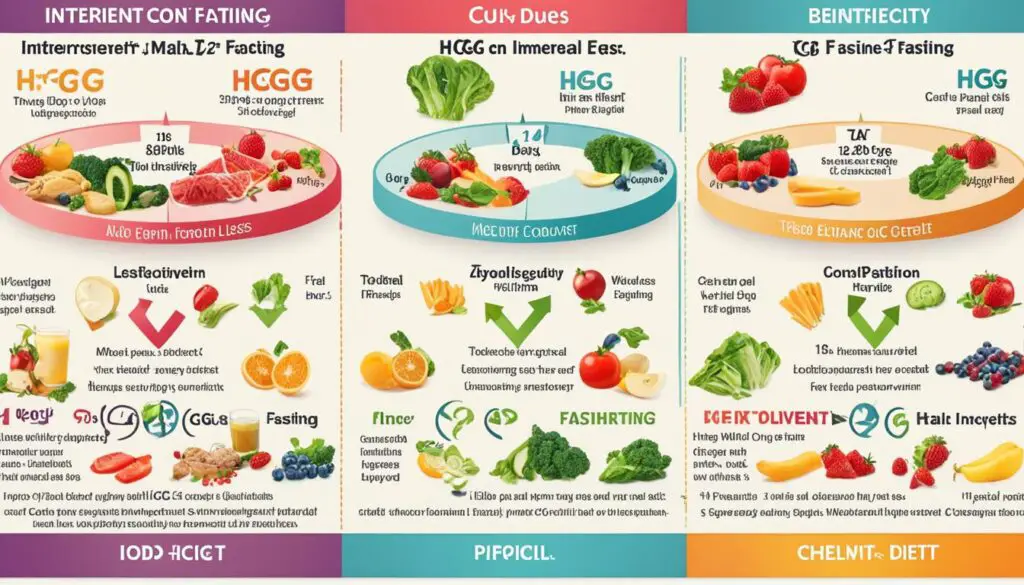
While the hCG diet and intermittent fasting share some similarities in terms of calorie restriction and limited eating windows, they are not considered the same approach to weight loss. Intermittent fasting typically involves cycling between periods of eating and fasting, while the hCG diet restricts calorie intake every day. Let’s explore the key differences between the two:
1. Calorie Restriction:
The hCG diet involves severe calorie restriction, typically ranging from 500 to 800 calories per day. On the other hand, intermittent fasting focuses more on the timing of meals rather than the number of calories consumed. It allows for regular calorie intake during eating periods and fasting during specific time frames.
2. Eating Windows:
Intermittent fasting emphasizes specific eating windows, such as the popular 16/8 method where individuals fast for 16 hours and consume all their calories within an 8-hour window. In contrast, the hCG diet restricts calorie intake throughout the day, with no specific eating or fasting windows.
3. Scientific Evidence:
Intermittent fasting has gained popularity in recent years and has been studied extensively for its potential health benefits, including weight loss, improved insulin sensitivity, and cellular repair. In contrast, there is limited scientific evidence to support the effectiveness of the hCG diet for weight loss or overall health improvement.
4. Effects on Growth and Anabolic States:
The hCG diet claims to promote anabolic or growth-promoting states within the body. However, there is no scientific evidence to support this claim or show any direct connection between the hCG diet and enhanced muscle growth. On the other hand, intermittent fasting has been shown to have some potential benefits for muscle preservation and growth when combined with resistance training and adequate protein intake.
It is important to note that the hCG diet and intermittent fasting should not be seen as equivalent methods for weight loss. While intermittent fasting has gained recognition for its potential health benefits, the hCG diet lacks scientific support and may pose risks due to its severe calorie restriction.
| HCG Diet | Intermittent Fasting | |
|---|---|---|
| Calorie Restriction | Severe daily calorie restriction (500-800 calories) | Varies based on fasting protocol, but no strict calorie restriction |
| Eating Windows | No specific eating or fasting windows | Specific eating and fasting windows |
| Scientific Evidence | Limited scientific evidence for effectiveness | Extensive scientific research supporting potential health benefits |
| Effects on Growth and Anabolic States | No scientific evidence to support growth-promoting claims | Some potential benefits for muscle preservation and growth |
In conclusion, while both the hCG diet and intermittent fasting involve calorie restriction, they differ in terms of approach, scientific evidence, and effects on the body. It is important to make informed decisions about weight loss strategies and consult with a healthcare professional or registered dietitian to choose a safe and effective approach.
Conclusion
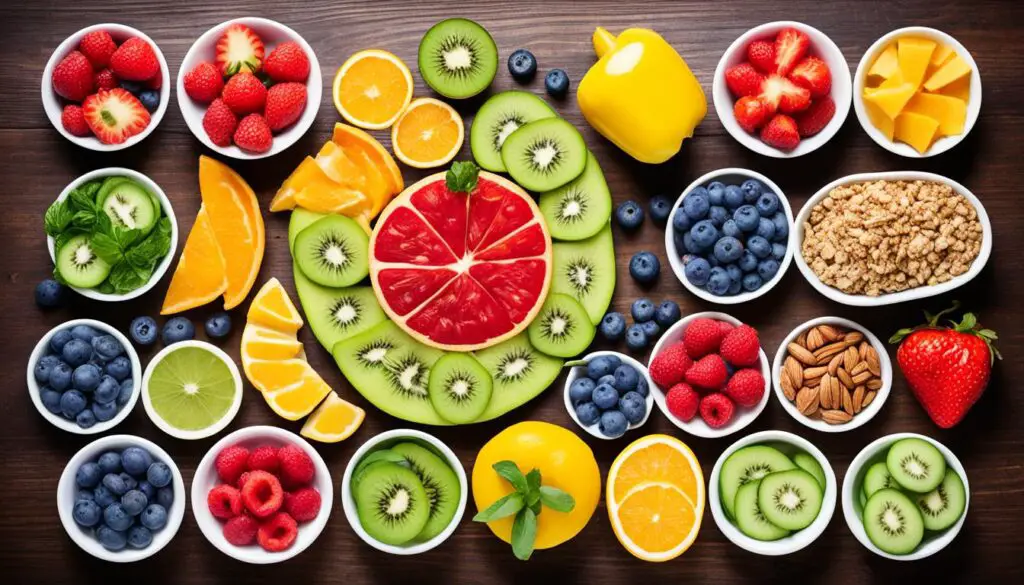
After careful consideration, it is evident that the hCG diet is not recommended for individuals seeking healthy weight loss and balanced nutrition. The severe calorie restriction, lack of scientific evidence, and potential for nutrient deficiencies and adverse effects make it an unsafe choice. Instead, it is advisable to opt for safer and more sustainable methods that focus on maintaining a healthy calorie consumption through balanced nutrition and lifestyle changes.
Consulting with a healthcare professional or registered dietitian is crucial in establishing a personalized weight loss plan that meets individual needs and goals. They can provide expert guidance and support to ensure a safe and effective weight loss journey.
| Aspect | hCG Diet | Sustainable Weight Loss Methods |
|---|---|---|
| Caloric Intake | Severely restricted (500-800 calories per day) | Calorie deficit achieved through portion control and regular exercise |
| Nutrition | Lacks balanced nutrition; potential for nutrient deficiencies | Focused on balanced diet with essential nutrients |
| Evidence | Lack of scientific evidence supporting effectiveness | Backed by scientific research, proven to be effective |
| Long-Term Sustainability | Difficult to maintain weight loss; potential for muscle loss and slower metabolism | Promotes sustainable weight loss; healthier lifestyle changes for long-term success |
When it comes to weight loss, prioritizing overall health and well-being should be the ultimate goal. Adopting a balanced and sustainable approach to nutrition and incorporating regular exercise into daily routines is the key to long-lasting and successful weight management.
Remember, healthy calorie consumption, not extreme restriction, is the path to achieving your weight loss goals.
Reference Sources
The information provided in this article is based on data from the National Health and Nutrition Examination Survey, FDA warnings and regulations, and scientific studies published in reputable journals. Additional information can be found from the sources mentioned in this section.
Additional Resources
If you’re looking for more information on the hCG diet and effective weight loss strategies, I highly recommend consulting with a healthcare professional or registered dietitian. They have the expertise to provide personalized guidance and support tailored to your individual needs and goals.
A healthcare professional or registered dietitian can offer valuable insights into the hCG diet, help you understand its potential risks and benefits, and provide evidence-based recommendations for achieving sustainable weight loss. They can also address any concerns or questions you may have and guide you towards a balanced and healthy approach to managing your weight.
Remember, your journey towards better health and weight management should be approached in a safe and informed manner. By working with a trusted healthcare professional or registered dietitian, you can ensure that you receive accurate information and evidence-based recommendations that align with your unique circumstances.
FAQ
What is the hCG diet?
The hCG diet is a very low-calorie diet, typically ranging from 500 to 800 calories per day, that is supplemented with hCG injections. It involves following a restricted eating plan and claims to stimulate weight loss by burning stored body fat. However, there is no scientific evidence to support these claims, and the FDA has not approved the use of hCG for weight loss.
Is the hCG diet safe?
The hCG diet is not considered safe by health experts. The severe calorie restriction can lead to nutrient deficiencies and potential risk of developing other diseases. It also raises concerns about the potential for disordered eating behaviors. The FDA has warned against the use of over-the-counter hCG products, as they are unregulated and may contain unknown ingredients. Side effects of the hCG diet may include fatigue, irritability, depression, and potential for blood clots and other serious adverse reactions.
Does hCG promote muscle loss?
The hCG diet claims to promote fat loss while preserving muscle mass. However, there is no scientific evidence to support this claim. In fact, very low-calorie diets like the hCG diet can lead to decreased muscle mass and a slower metabolism, making it difficult to maintain weight loss in the long term.
Does the hCG diet work for weight loss?
Studies have shown that weight loss achieved on the hCG diet is primarily due to the severe calorie restriction, not the hCG hormone itself. Placebo-controlled studies have found no significant difference in weight loss between individuals on the hCG diet and those on a calorie-restricted diet without hCG. The hCG hormone has also been found to be ineffective in reducing hunger.
What are the potential risks of the hCG diet?
The hCG diet poses several potential risks. The severe calorie restriction can lead to nutrient deficiencies, gallstone formation, irregular heartbeat, and electrolyte imbalances. Side effects of the diet may include fatigue, irritability, depression, fluid buildup, and swelling of the breasts in males. There have also been reports of serious adverse reactions, including blood clots and other cardiovascular issues.
Are there any proven benefits of the hCG diet?
There are no scientifically proven benefits of the hCG diet. The claims of rapid weight loss and appetite suppression are not supported by scientific evidence. The diet has not been shown to be effective for long-term weight loss or improved overall health.
Are there alternative methods for weight loss?
If weight loss is the goal, there are safer and more sustainable methods that are recommended by health care professionals. These methods include eating a balanced diet, maintaining a calorie deficit through portion control and regular exercise, and seeking guidance from a healthcare professional or registered dietitian.
Is the hCG diet similar to intermittent fasting?
While the hCG diet involves calorie restriction and limited eating windows, it is not considered a style of intermittent fasting. Intermittent fasting typically involves alternating periods of eating and fasting, while the hCG diet restricts calorie intake every day. There is also no scientific evidence to support the claim that the hCG diet promotes anabolic or growth-promoting states.
What are your reference sources?
The information provided in this article is based on data from the National Health and Nutrition Examination Survey, FDA warnings and regulations, and scientific studies published in reputable journals. Additional information can be found from the sources mentioned in this section.
Where can I find additional resources on the hCG diet?
For more information on the hCG diet and weight loss strategies, consider consulting with a healthcare professional or registered dietitian. They can provide personalized guidance and support based on your individual needs and goals.


